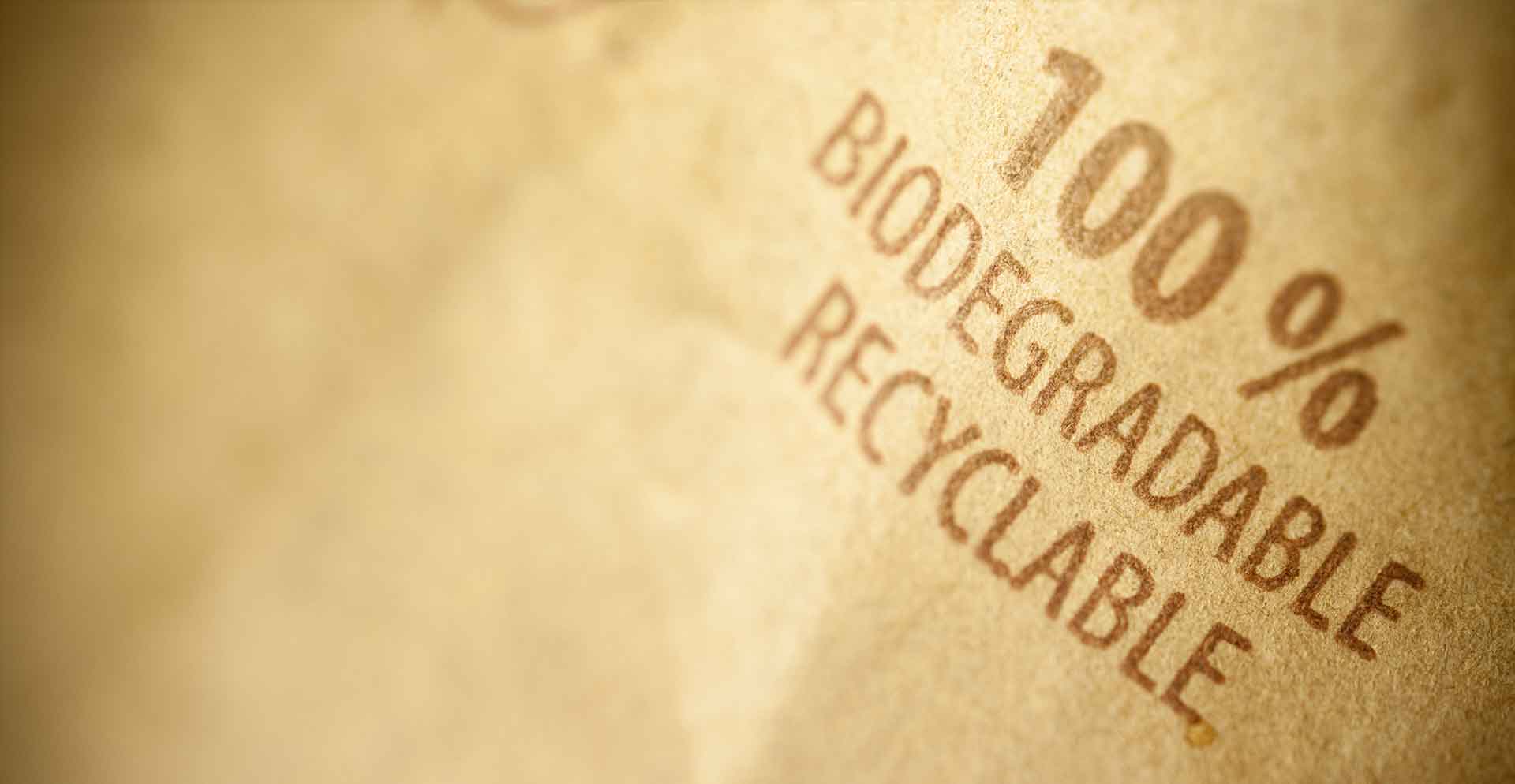Dead Cert
Look for packaging certified as “compostable”. Packaging that is certified compostable will safely biodegrade in a compost environment, whether domestic or commercial. The certification brings assurance that the package will completely and safely decompose under certain conditions, and within a pre-defined time frame, leaving nutrient-rich soil behind.
Biodegradable packaging, such as paper or cellulose, has a weak molecular structure so it will disintegrate quickly.
Paper
Is one of the oldest, and most traditional forms of compostable packaging. It biodegrades rapidly, and can be easily recycled. In the right conditions, paper will biodegrade within days. It isn’t suitable for all packaging products, particularly food items, as it does not offer the same protection or sealing as other packaging materials.
Hemp
Is highly biodegradable, versatile, and resilient. It remains an expensive source for making bioplastics, and is not yet commercially available in a polymerised form. Hemp biodegrades cleanly, safely, and is a renewable alternative. As a bioplastic, it is actually stronger than plastic, and will biodegrade within three to six months.
Polyactic acid, or PLA plastic
Is widely used for short-life packaging products, like food stuffs, and single use items. Bio-based, PLA can be moulded in the same way as conventional plastic. However, it is not a biodegradable material in just any environment. PLA will only degrade at a high temperature, such as under industrial composting conditions, a process that takes several months.
Cellulose
Is plant-based. It is suitable for short-term packaging, but quickly discolours, and degrades very easily. This makes it unsuitable for food products or items with a shelf-life. Cellulose packaging biodegrades within 1-2 months if uncoated, 2-3 if coated. In water, uncoated cellulose degrades in 10 days, and within 30, if coated.
Seaweed-based materials
Is highly biodegradable, and will degrade in four to six weeks in the soil. Suitable for short-term packaging, seaweed is unstable and therefore unsuitable for food packaging. Similarly, it does not fare well in transport and storage. Naturally occurring, seaweed can grow up to three feet a day and doesn’t require fresh water or fertiliser.
Seaweed has been removing carbon dioxide from the atmosphere for at millions of years. Recent studies suggest that wild seaweed sequesters 173 million metric tons annually. The average square kilometer of seaweed can sequester more than a thousand metric tons of carbon dioxide. Seaweed is sustainable and sustaining. But seaweed packaging remains niche, and that makes it more expensive than its traditional plastic counterparts.
While the packaging industry strives to make packaging as sustainable and environmentally friendly as possible, the end user has a real part to play too. As explained, not all packaging products will promptly biodegrade outside of optimum conditions. From food waste bins and domestic composting to commercial and industrial composting: if you’re unsure, contact your local council for advice.
Choose biodegradable or compostable packaging: the eco-friendly solution for a sustainable future. Contact us today, on 01625 870000.
